Menu
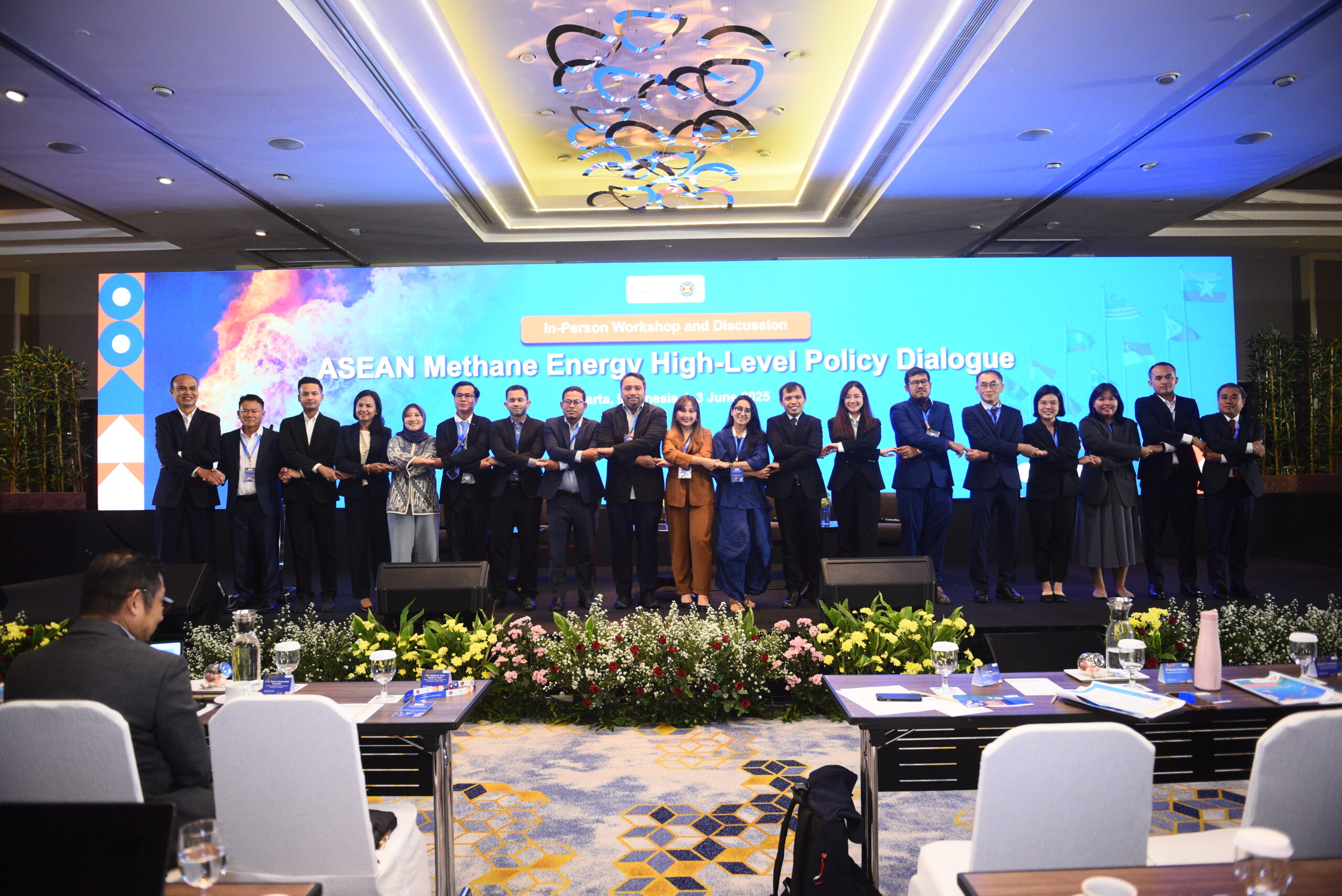
Photo 1. Group photo of ASEAN Methane Energy High-Level Policy Dialogue participants
In a critical step towards enhancing regional cooperation on climate action, the ASEAN Centre for Energy (ACE), with support from the Global Methane Hub (GMH), convened the ASEAN Methane Energy High-Level Policy Dialogue on 3–4 June 2025 in Jakarta, Indonesia. The event marked ASEAN’s first high-level forum dedicated to addressing methane emissions in the energy sector and laid the groundwork for the forthcoming Hub for Innovative and Harmonized Methane Emissions Mitigation in ASEAN’s Energy Sector (HORIZONS)—a regional platform for methane mitigation.
The event was structured as a series of panel discussions focused on building a common understanding of the methane challenge in ASEAN’s energy sector, sharing global experiences, and identifying priority areas for policy, industry action, data innovation, and financing. With participation from high-level government officials, technical experts, and business leaders, the discussions provided a strong knowledge base to inform the region’s next steps.
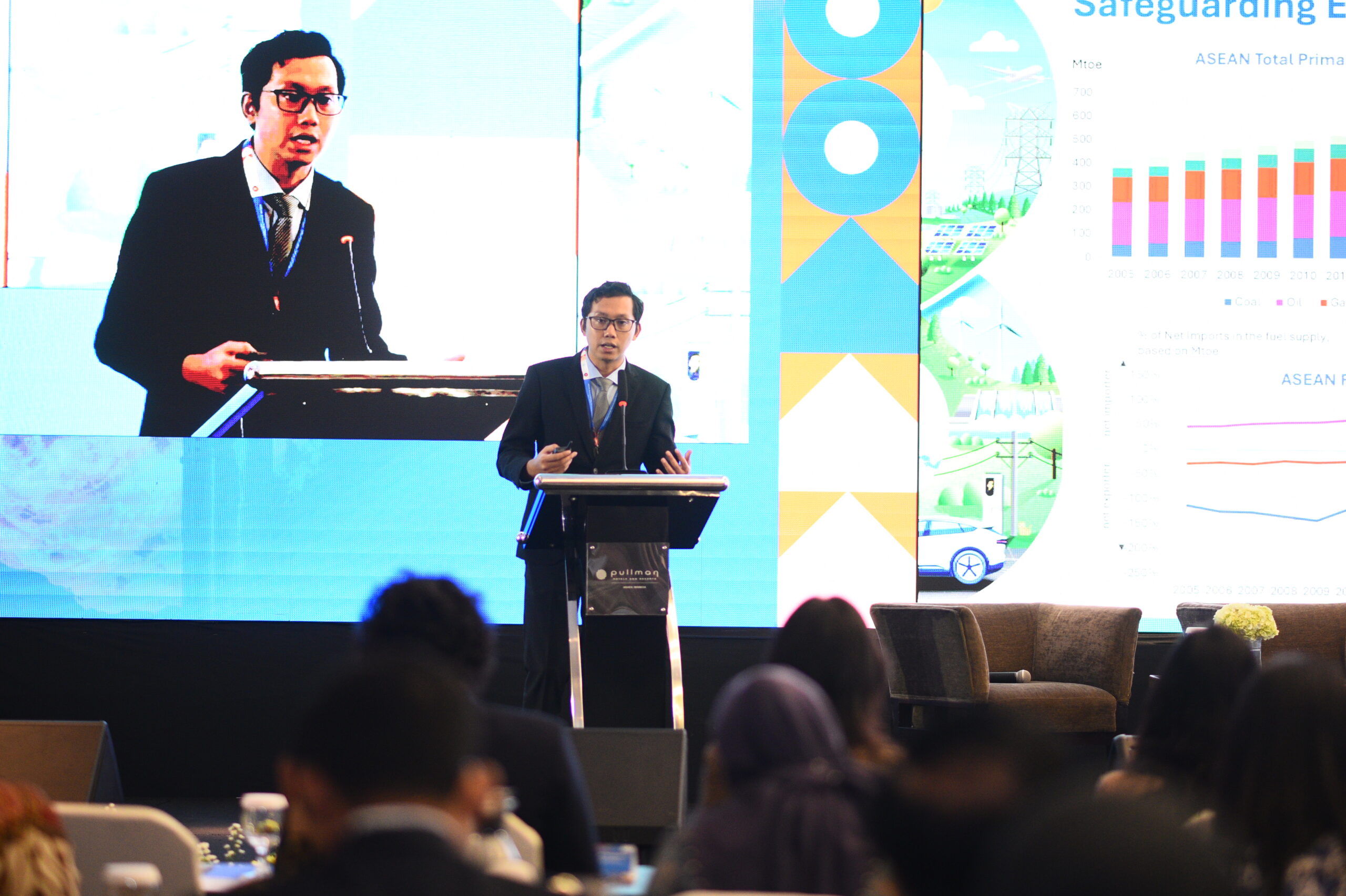 |
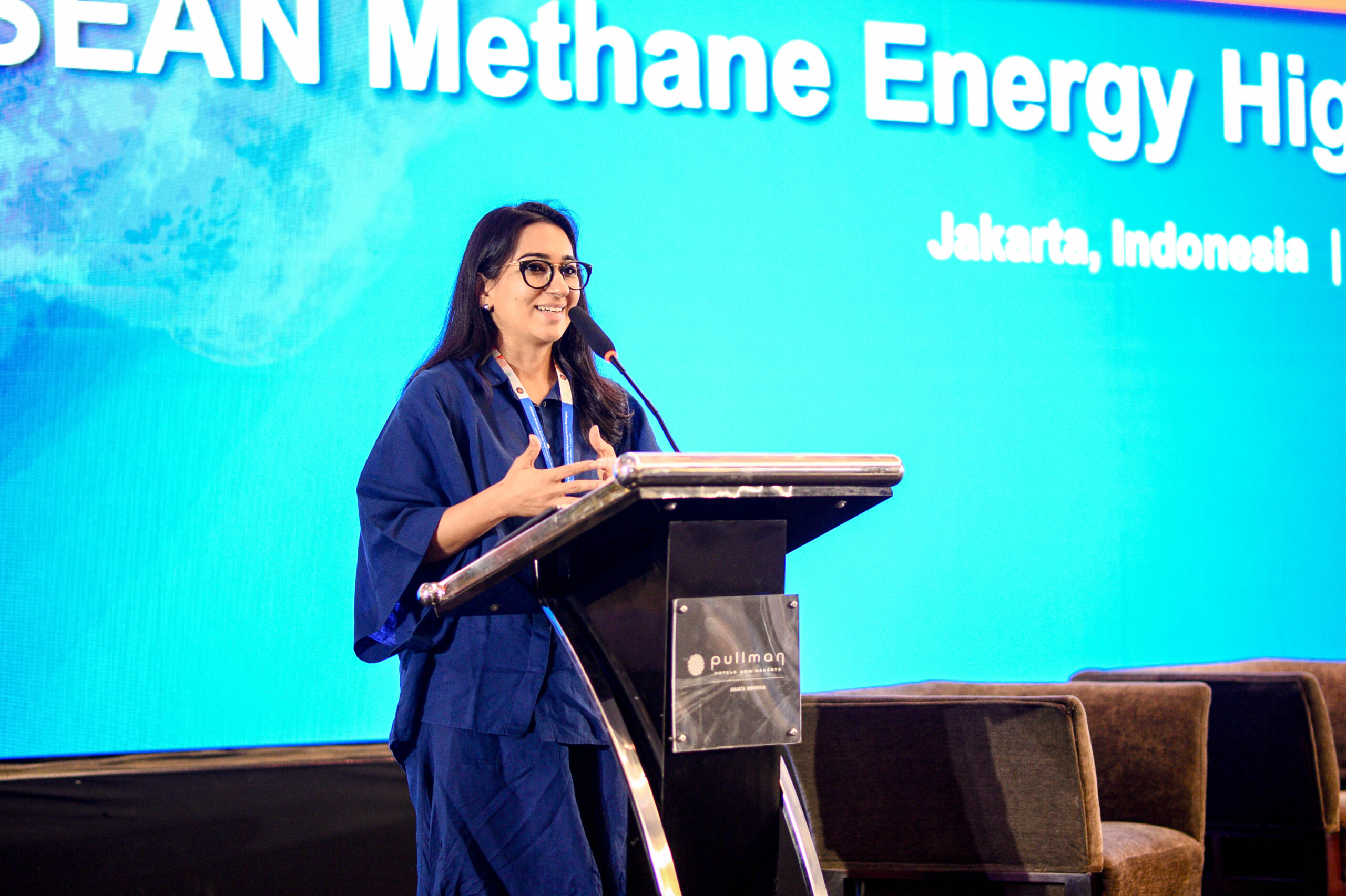 |
Photo 2. Dr Zulfikar Yurnaidi of ACE is delivering scene setting presentations (left) and Dr Manjyot Ahluwalia is acting as moderator.
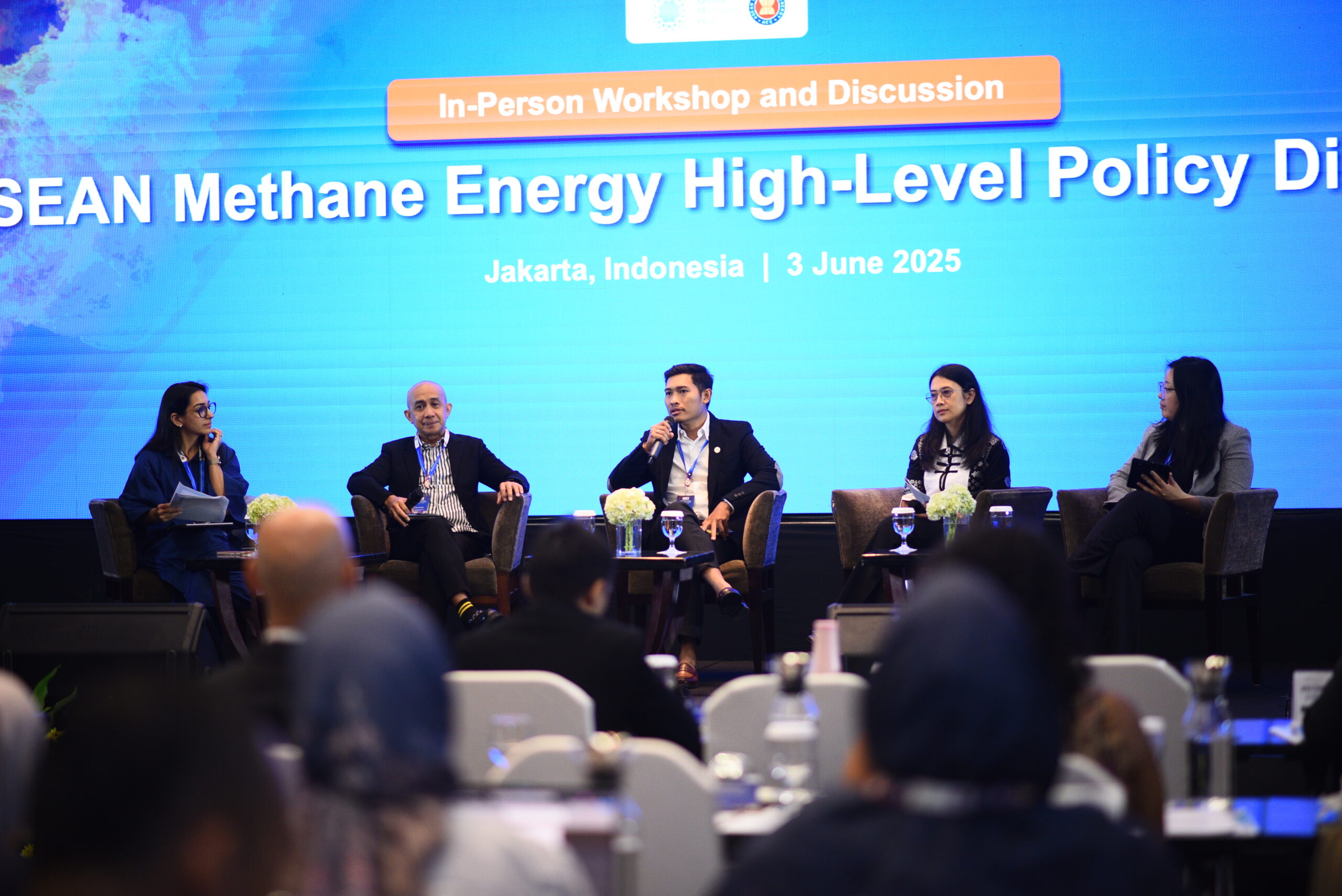 |
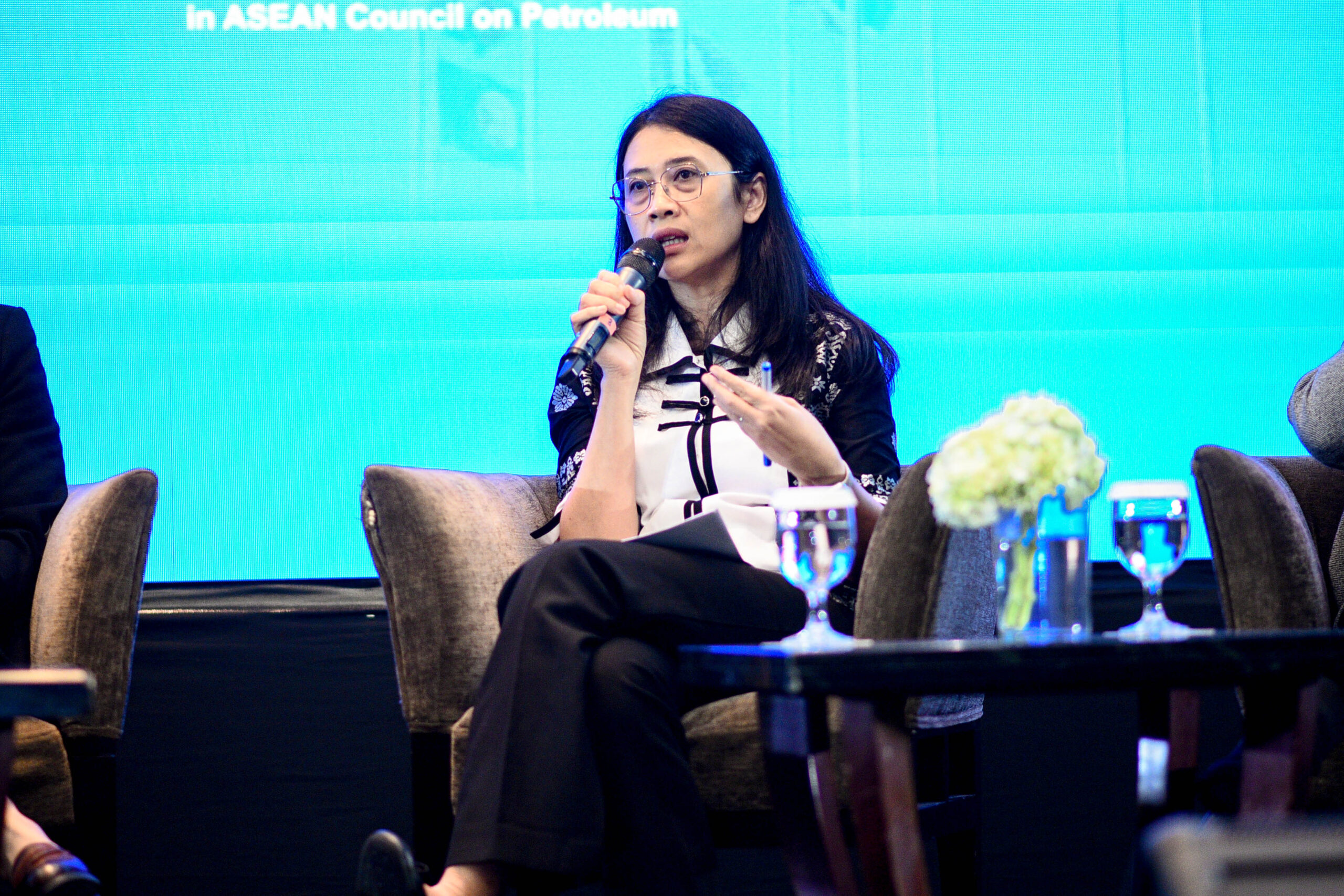 |
Photo 3. Dody Setiawan of Ember (left) is discussing with Margaretha Thaliharjanti of Pertamina/ASCOPE (right)
The first panel discussion provided an overview of ASEAN’s methane emissions landscape. Dr Zulfikar Yurnaidi, Manager of Energy Modelling and Policy Planning Department (ACE) opened with key insights from the 8th ASEAN Energy Outlook, revealing rising methane intensity in both coal and oil & gas sectors. Hendra Sinadia (Indonesia Mining Association), Dody Setiawan (Ember), Margaretha Thaliharjanti (Pertamina/ASCOPE), and Yihan Hao (Rocky Mountain Institute) shared sector-specific perspectives, emphasising the urgency of data transparency, better emissions accounting, and immediate policy engagement. The session was moderated by Dr Manjyot Ahluwalia (GMH).
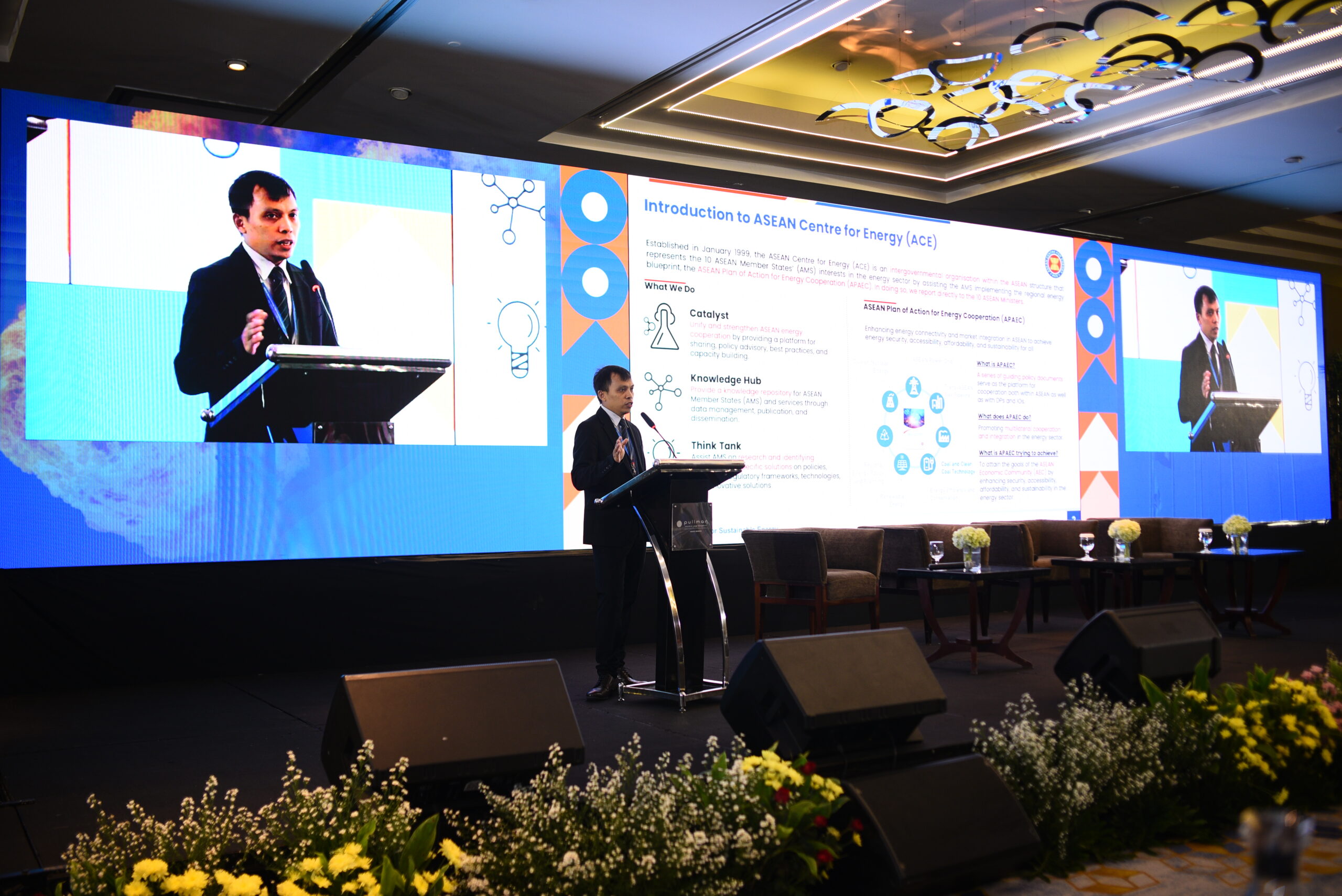 |
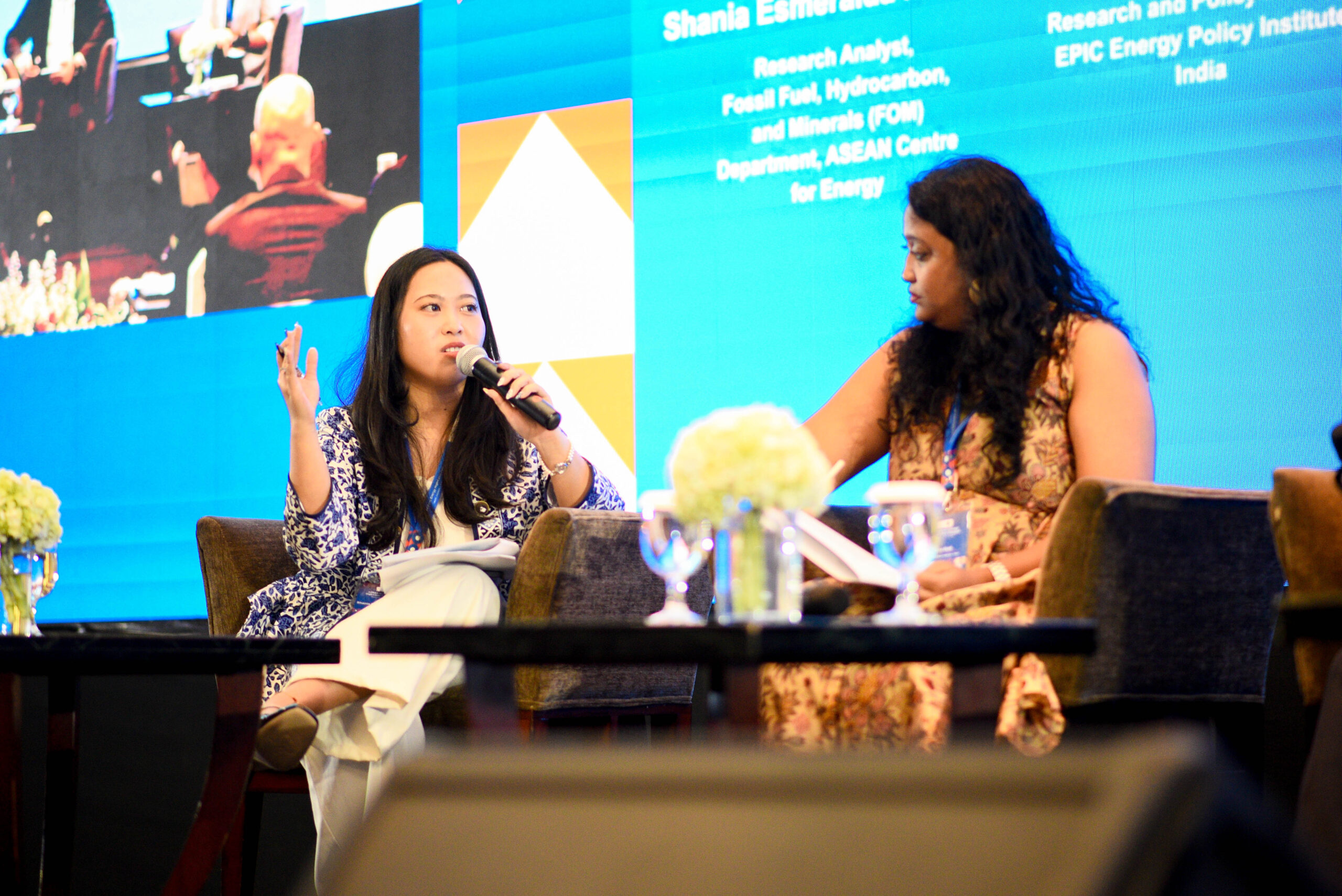 |
Photo 4. Suwanto of ACE is delivering scene setting presentations (left); and Shania Manaloe of ACE is acting as moderator and moderating discussion with and Swarna Dutt of EPIC is acting as speaker (right)
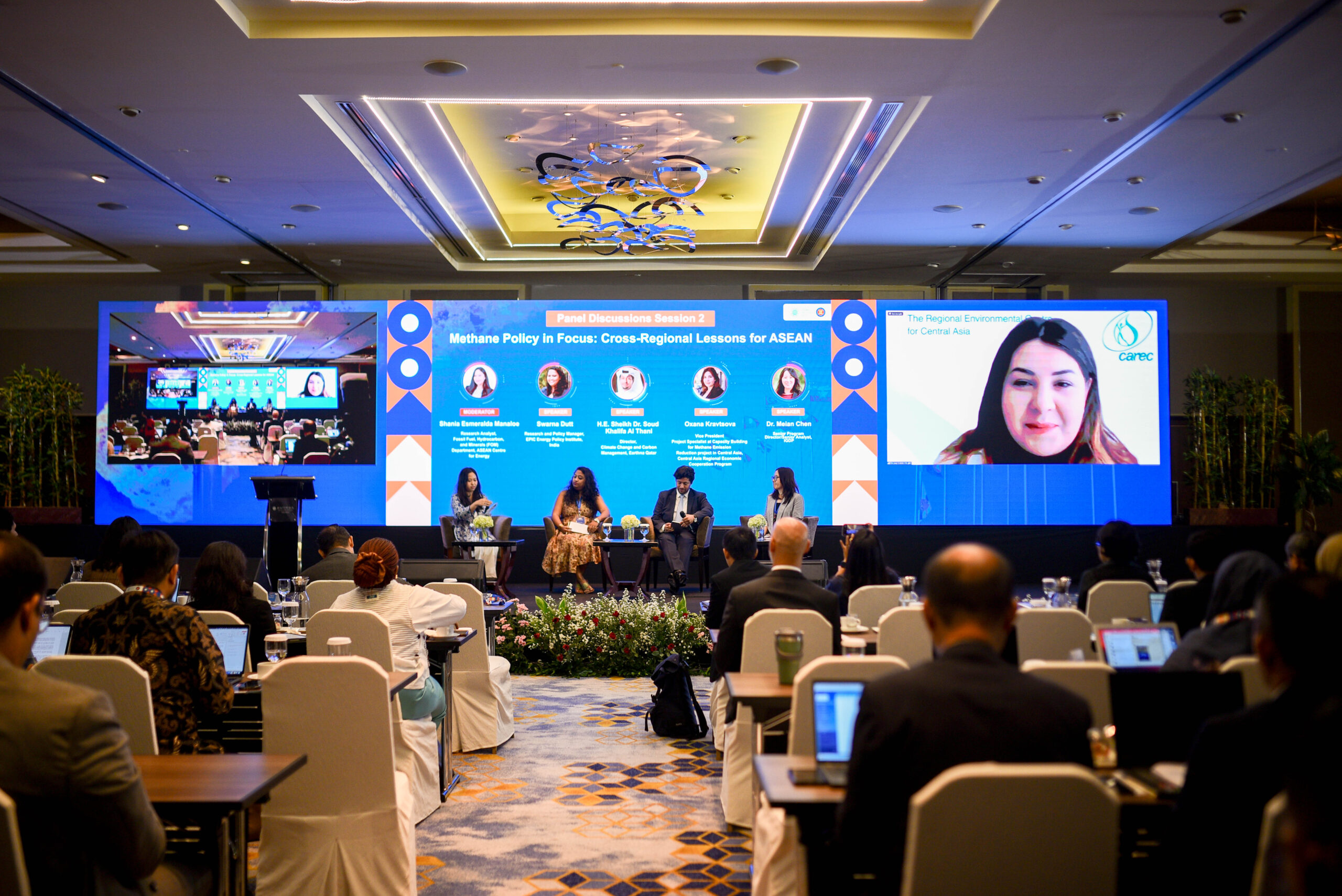 |
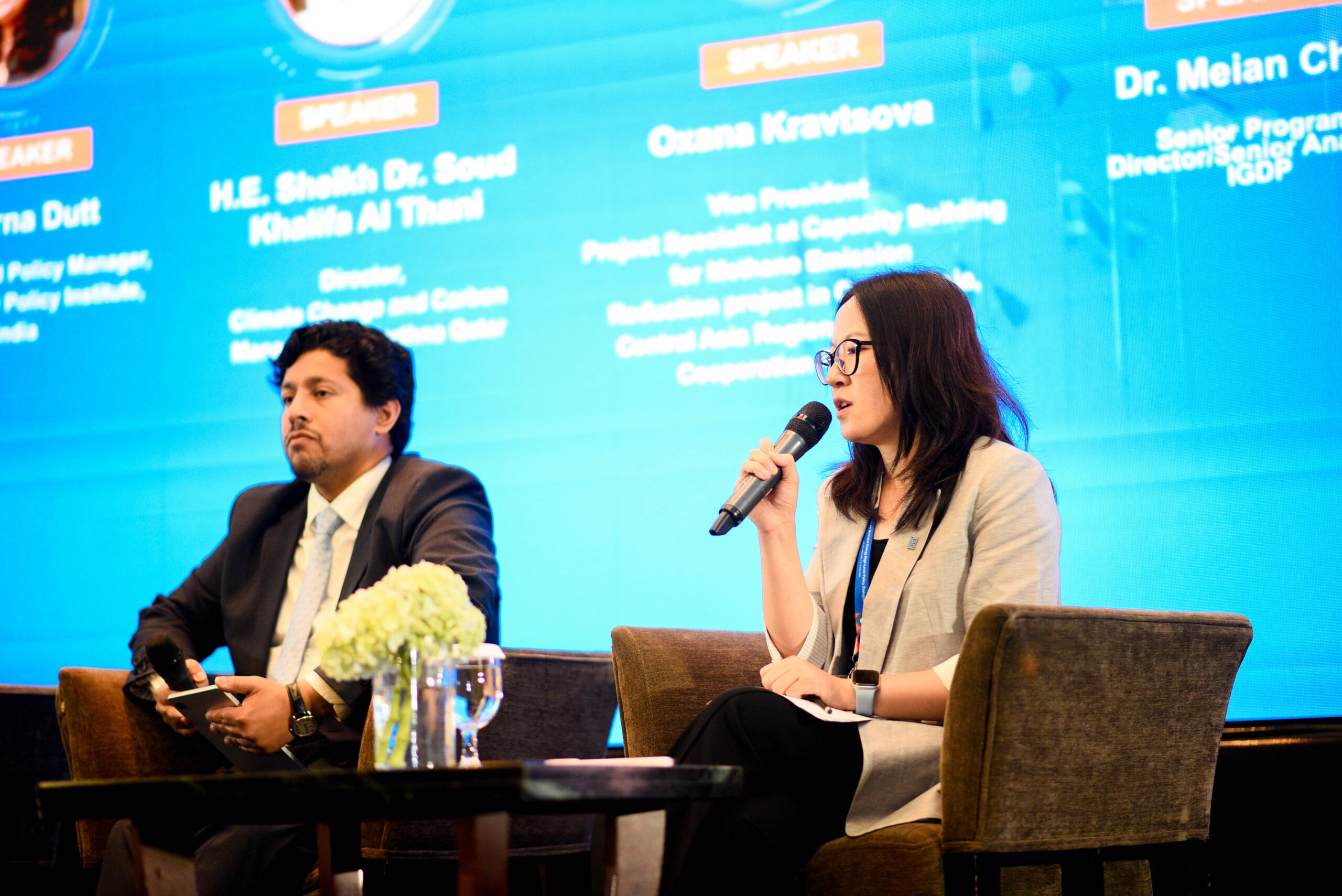 |
Photo 5. Oxana Kravtsova of CAREC is participating virtually (left) along with H.E. Sheikh Dr Soud Khalifa Al Thani of Earthna and , Dr Meian Chen of iGDP and other speakers (right)
The next session explored cross-regional lessons in methane policy, aiming to inform ASEAN’s policy development through international experience. Suwanto, Manager of Fossil, Hydrocarbon, and Mineral Department (ACE) offered an overview of ASEAN’s current policy landscape, noting that while six AMS have joined the Global Methane Pledge, concrete energy-related targets remain scarce. The discussion was moderated by Shania Manaloe, Research Analyst of Oil & Gas (ACE) and featured policy experts from outside the region, including Swarna Dutt (EPIC India), H.E. Sheikh Dr Soud Khalifa Al Thani (Earthna, Qatar), Oxana Kravtsova (CAREC), and Dr Meian Chen (iGDP, China). Speakers shared best practices in regulatory design, cross-sector coordination, and integrating methane into broader climate and energy policies.
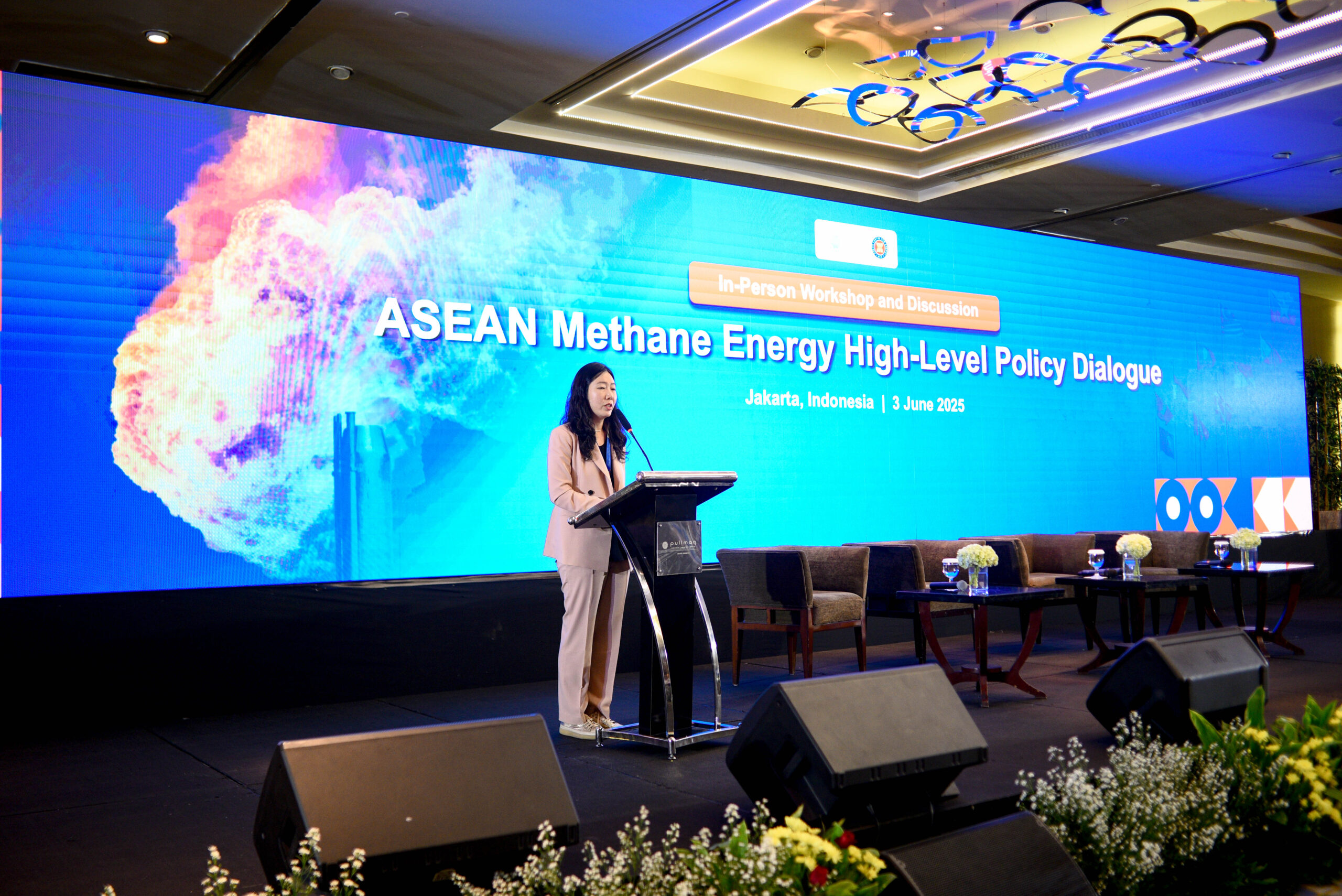 |
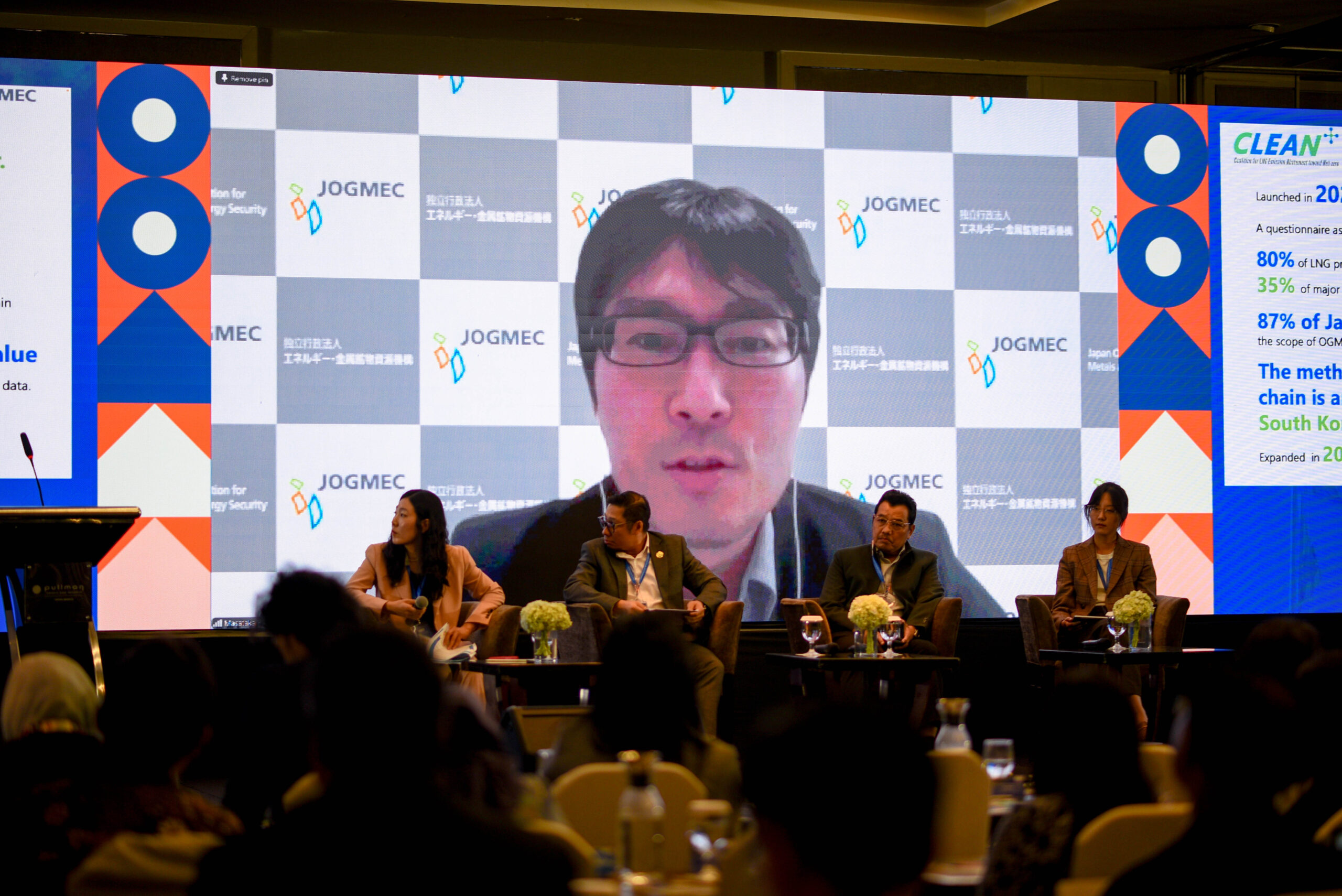 |
Photo 6. Jinsun Roh of Solutions for Our Climate (left) is discussing along with Masataka Yarita of JOGMEC and other speakers (right)
In a session on industry leadership and profitability, the dialogue turned to corporate strategies for emissions reduction. Following a framing presentation from Courtney Turich (IEA), Jinsun Roh (Solutions for Our Climate) moderated a panel featuring Masataka Yarita (JOGMEC), Ir. Ts. Hasnor Hassaruddin B Hashim (PETRONAS), Suripno (Pertamina), and Minhui Gao (Rocky Mountain Institute). They discussed the business case for methane reduction, including compliance trends, investor expectations, and how to embed methane management into sustainability frameworks. PETRONAS and Pertamina also shared experiences piloting emissions tracking systems within upstream operations.
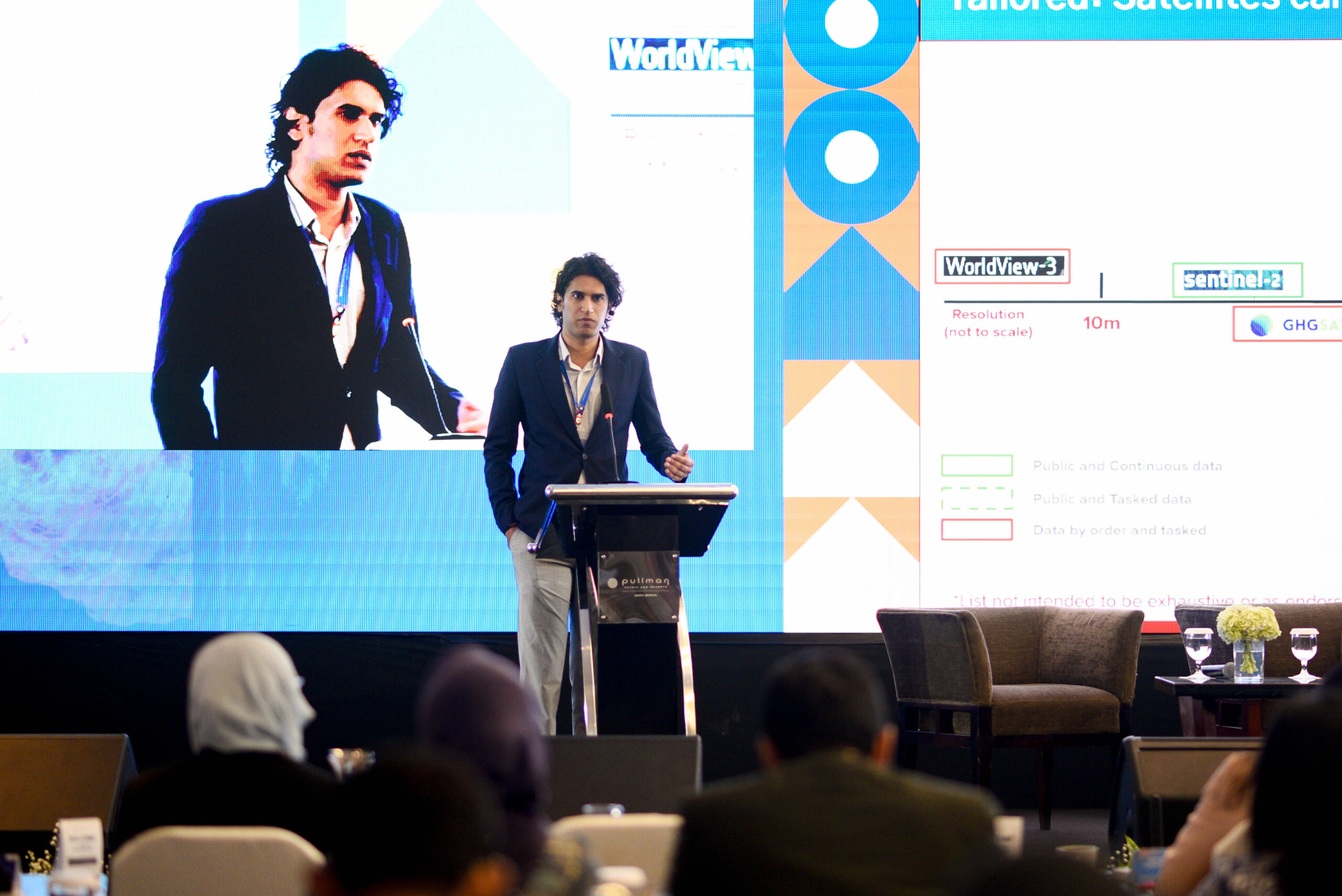 |
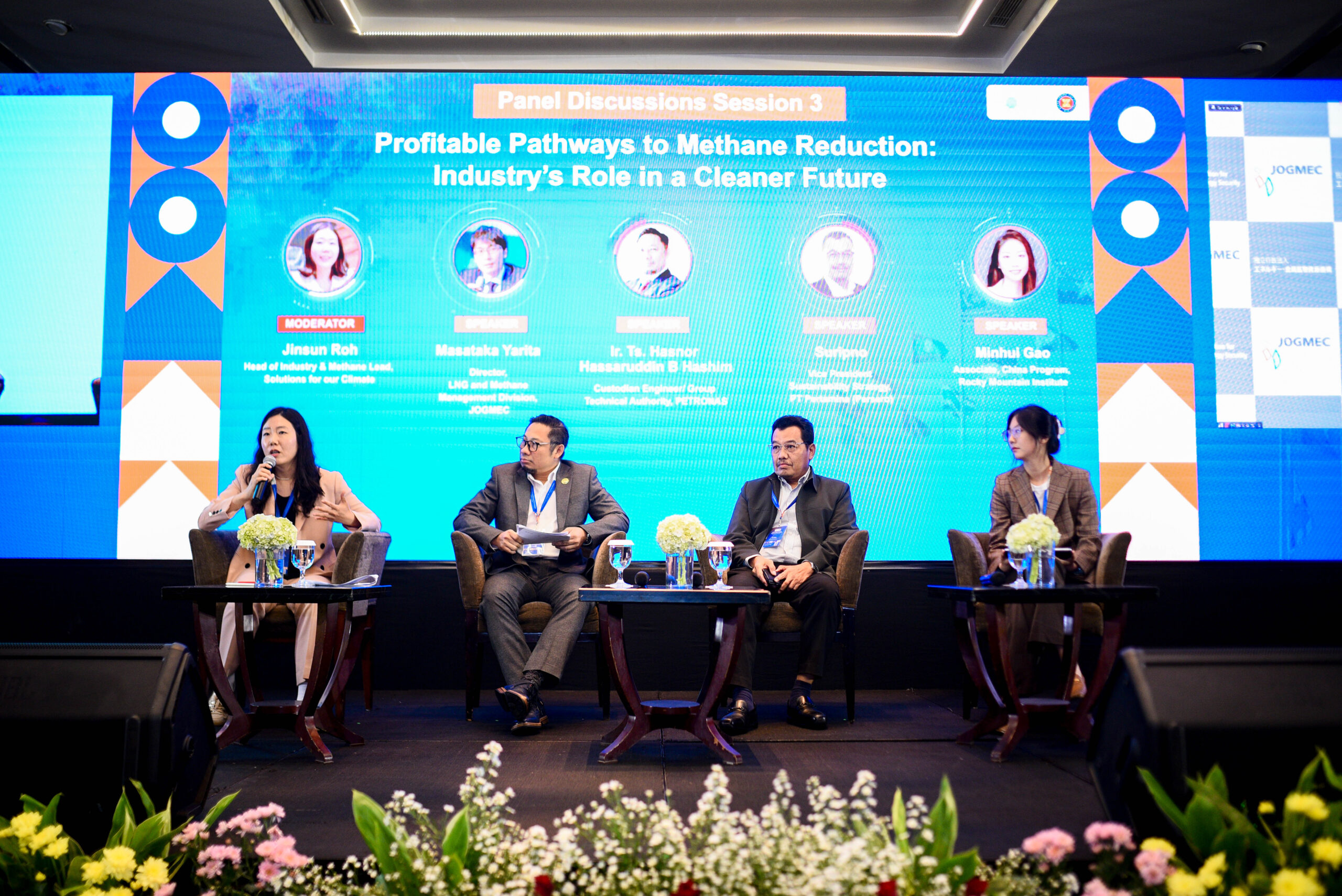 |
Photo 7. Suyash Nandgaonkar of EPIC India (left) is delivering technical brief and Listya Kusumawati of Climate and Clean Air Coalition is moderating discussion with other speakers (right)
The importance of accurate and accessible data was the focus of the next panel, which examined how satellite, remote sensing, and field-based technologies can support methane detection and policy action. The session opened with a technical briefing from Suyash Nandgaonkar (EPIC India) and was moderated by Listya Kusumawati (Climate and Clean Air Coalition). The panel brought together Rajasekhar Modadugu (Ember India), Meghan Demeter (UNEP IMEO), Manon Simon (Carbon Limits), Justin Nga (GE Vernova), and Ir. Siti Rafidah Binti Moslim (PETRONAS/ASEAN METEC), who collectively stressed the need for robust MRV systems, regional interoperability, and improved data-sharing mechanisms.
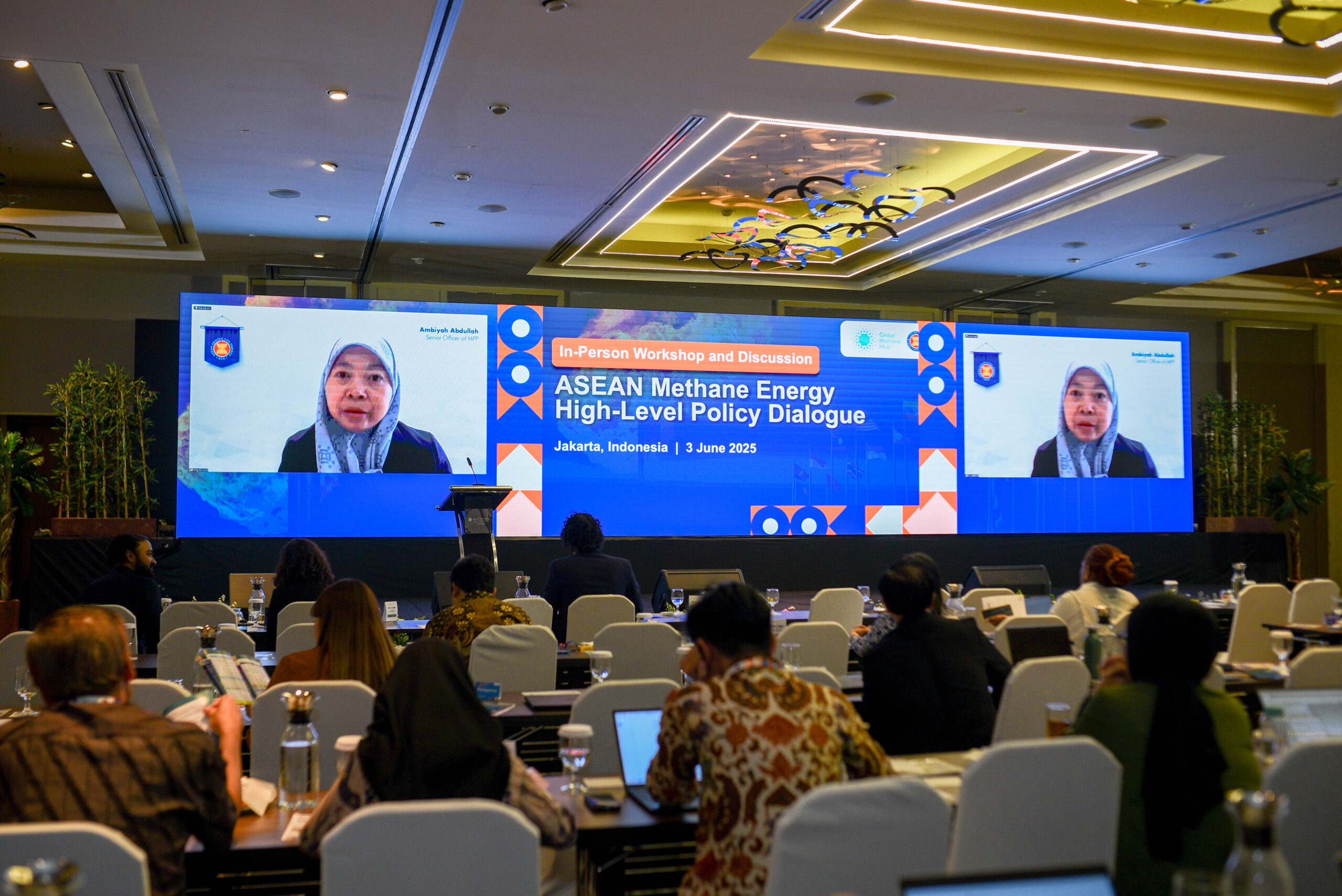
Photo 8. Dr Ambiyah Abdullah of ACE is delivering presentation in final session
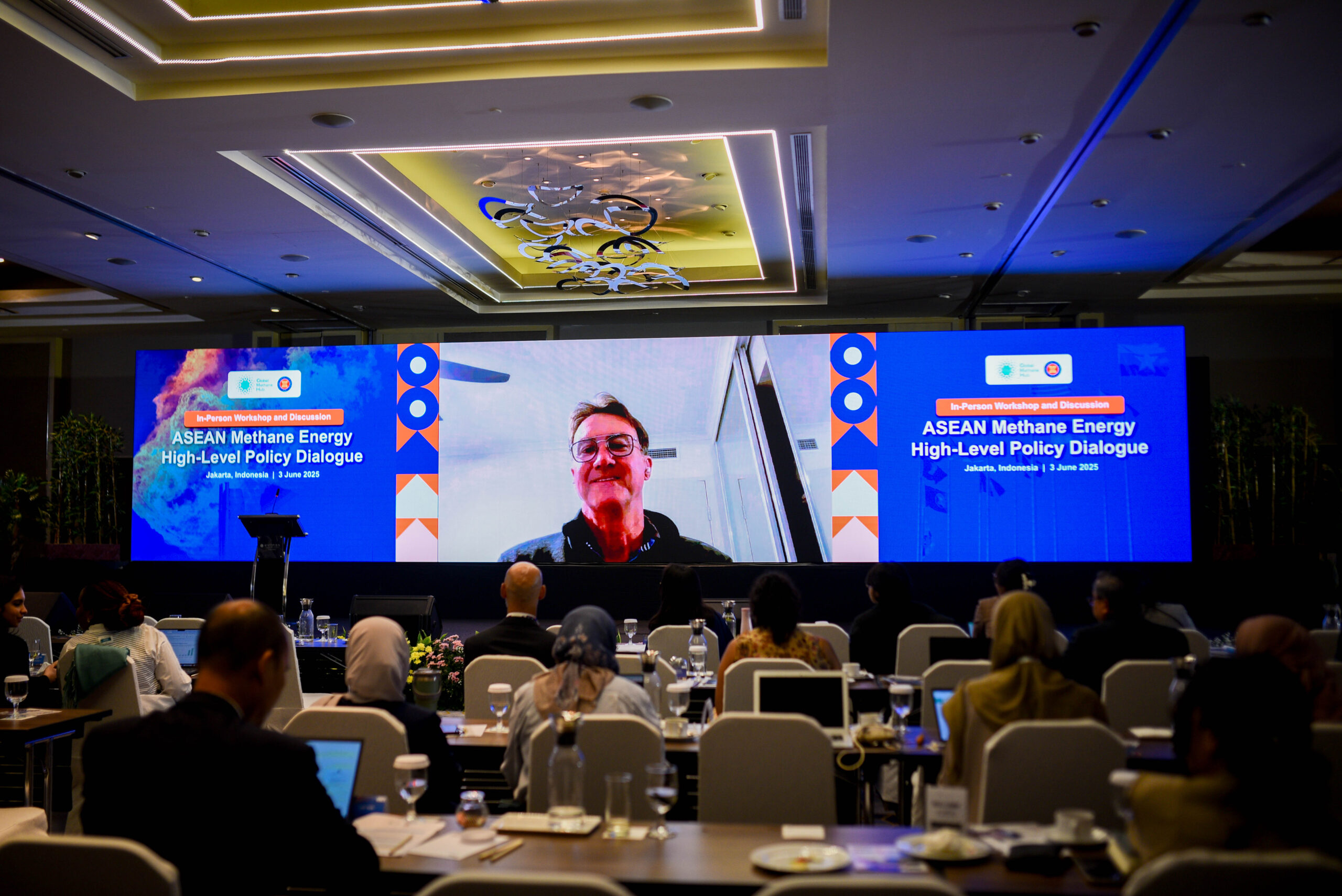 |
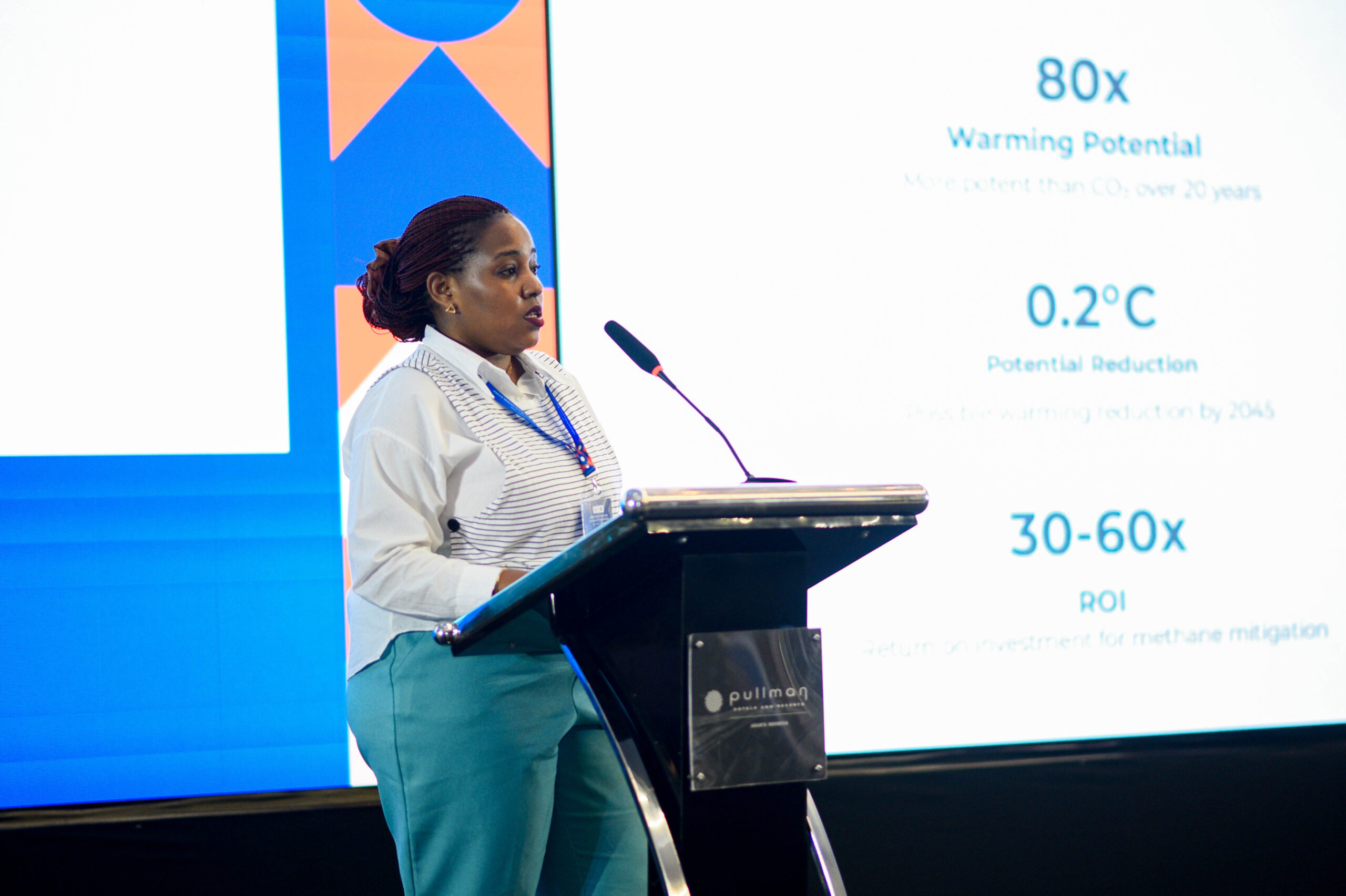 |
Photo 9. Andrew Gorringe of IEEFA (left) and Gloria Kebirungi of GMH (right) are delivering presentation in final session
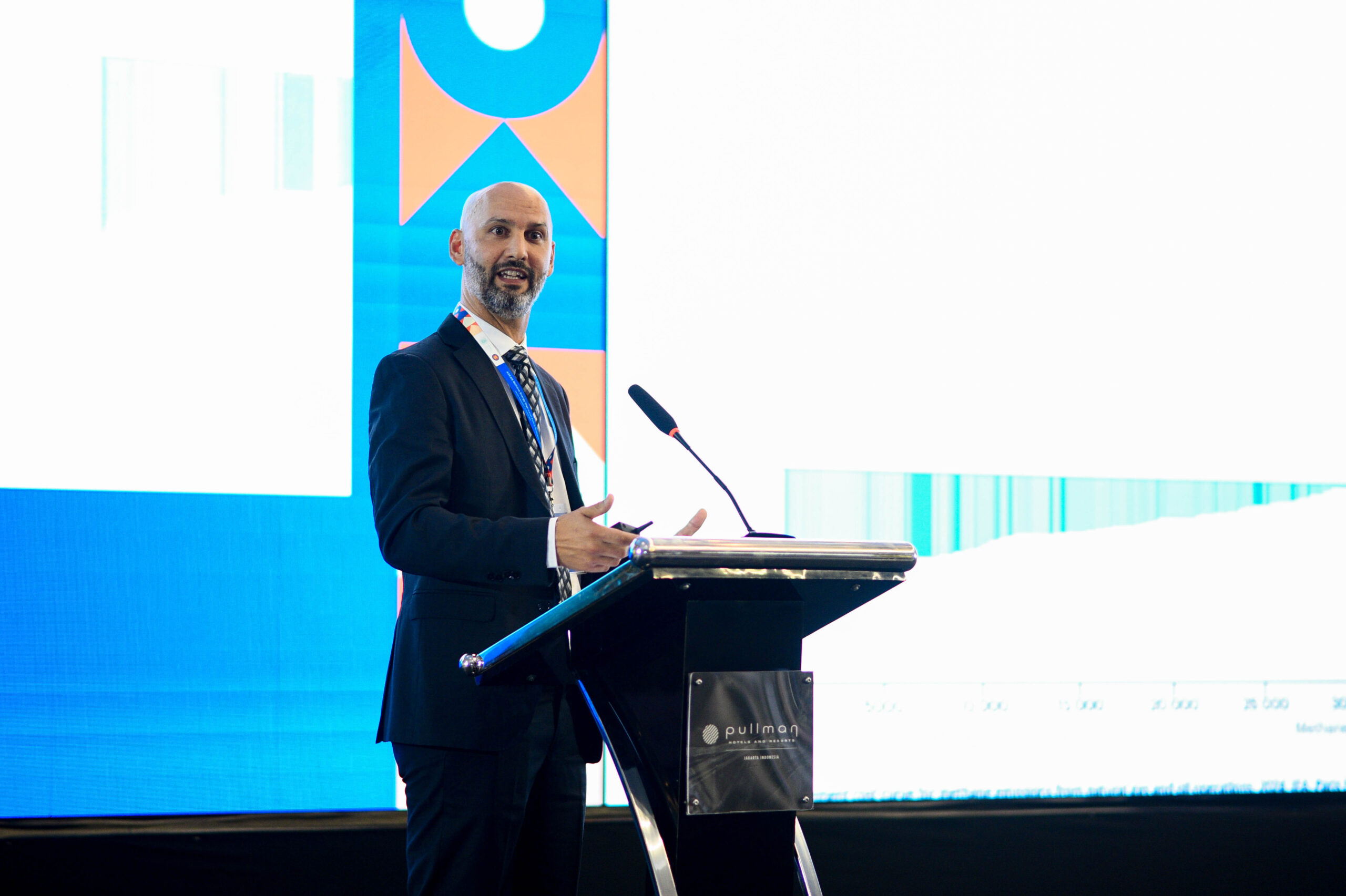 |
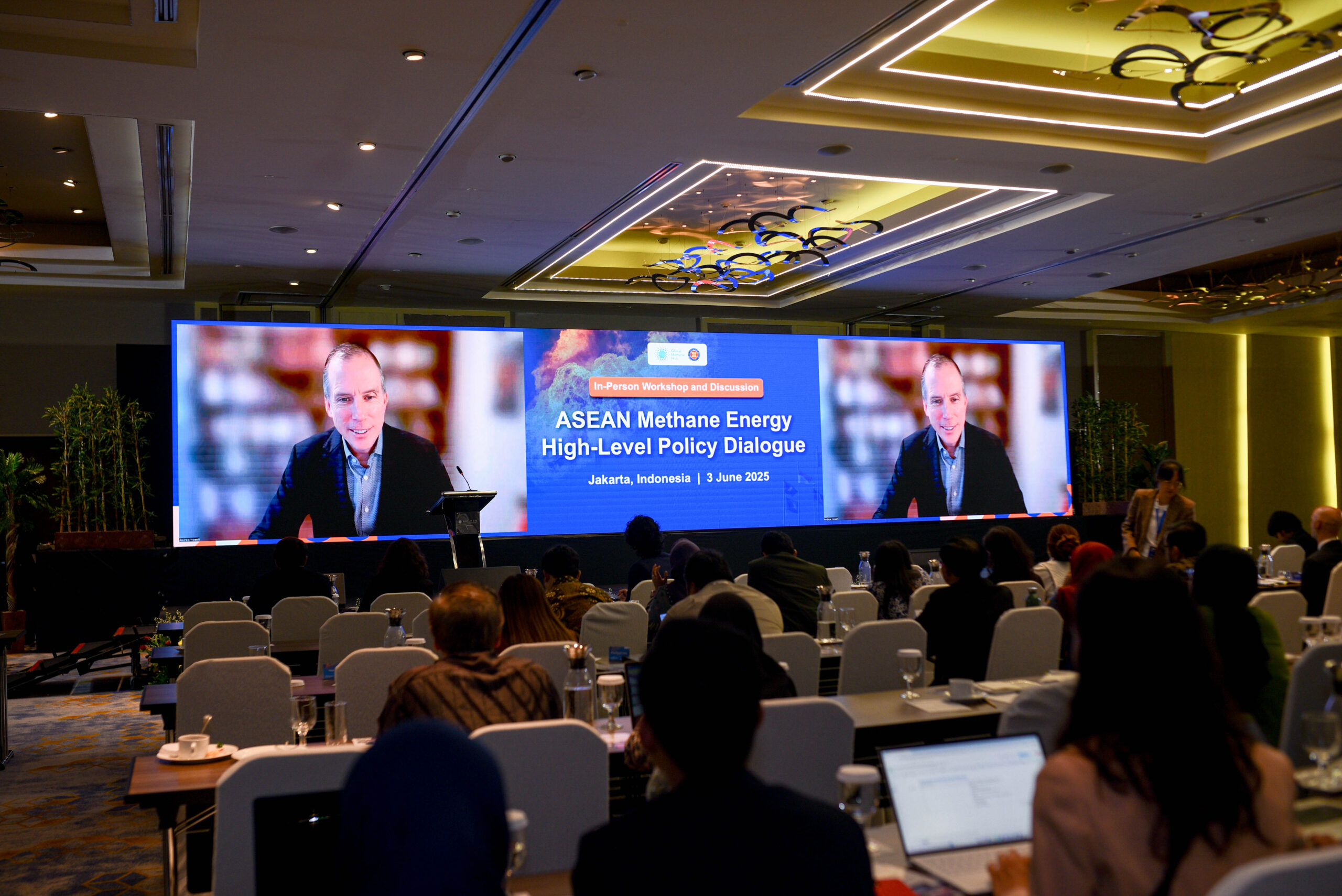 |
Photo 10. Pablo Lopez Legarreta of Clean Air Task Force (left) and Andrew Howell of Environmental Defense Fund (right) delivering presentation in final session
The final session of the day tackled financing options for methane mitigation. In a series of rapid presentations, Dr Ambiyah Abdullah, Senior Researcher of Energy Modelling and Policy Planning Department (ACE), Andrew Gorringe (IEEFA), Gloria Kebirungi (GMH), Pablo Lopez Legarreta (Clean Air Task Force), Baysa Naran and Alfred Sloley (Climate Policy Initiative), and Andrew Howell (Environmental Defense Fund) presented case studies and recommendations on financing readiness. The speakers discussed the role of concessional funding, blended finance, and the importance of project bankability in unlocking large-scale methane investments across developing economies.
The High-Level Dialogue marks a foundational moment in ASEAN’s methane journey, transforming fragmented awareness into structured action. Insights from the event will directly inform the establishment of the HORIZONS Hub, which aims to support capacity -building, knowledge exchange, policy harmonisation, and regional cooperation in methane mitigation.
